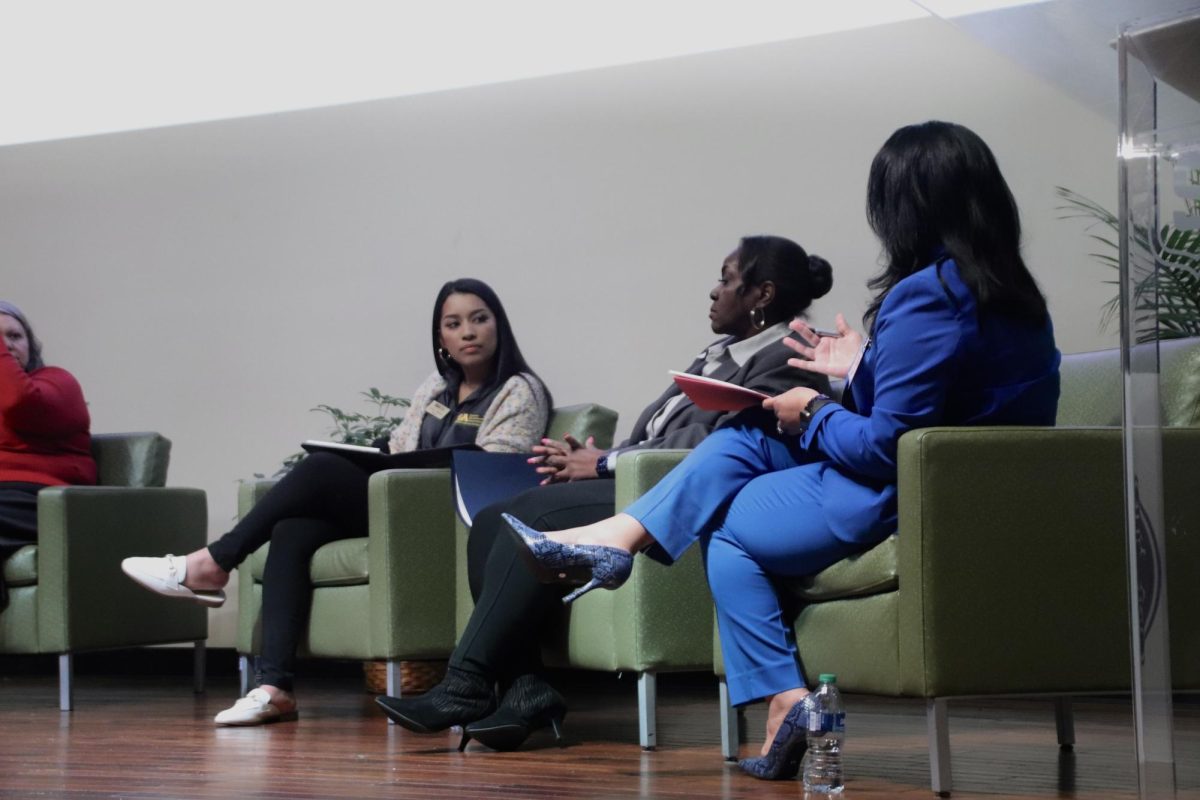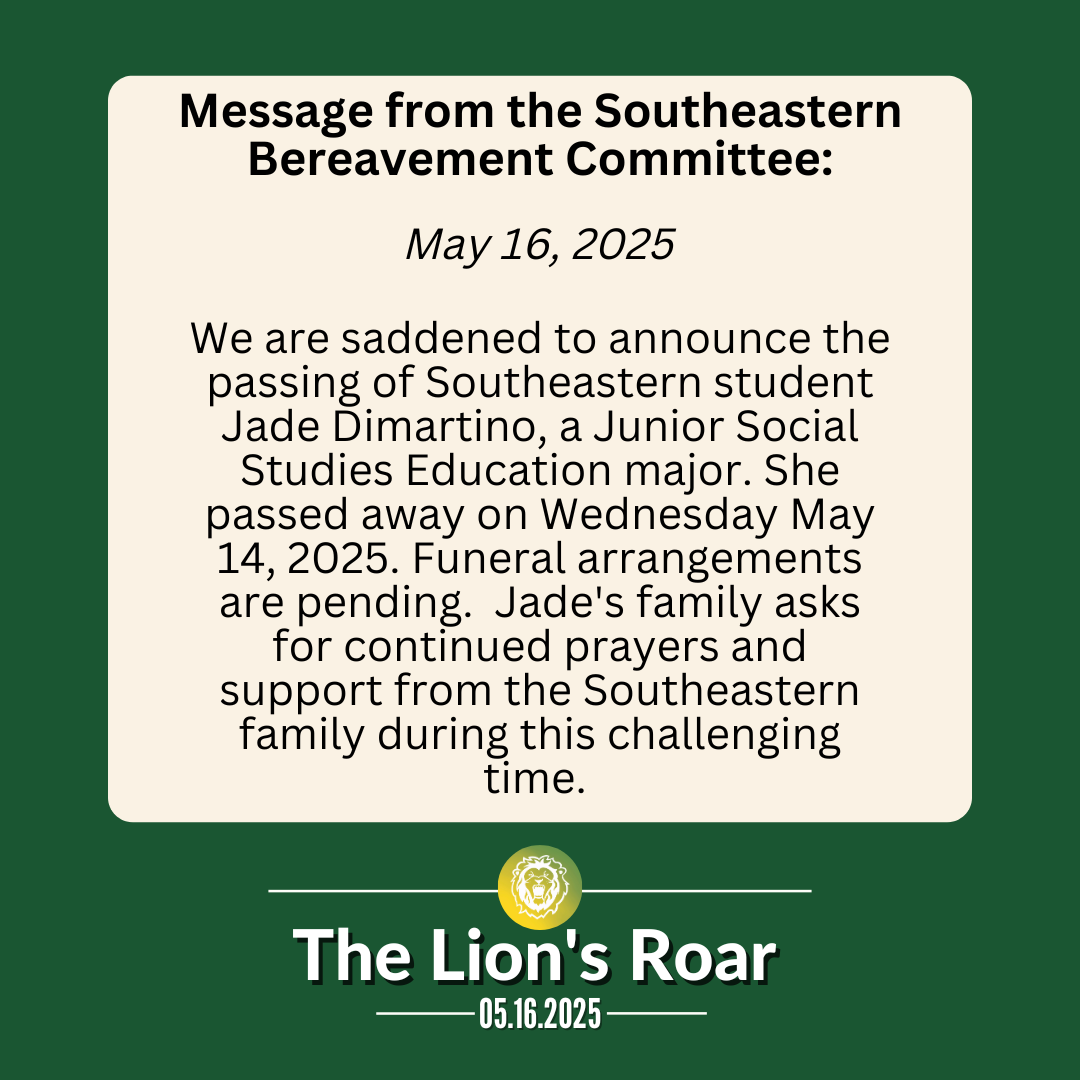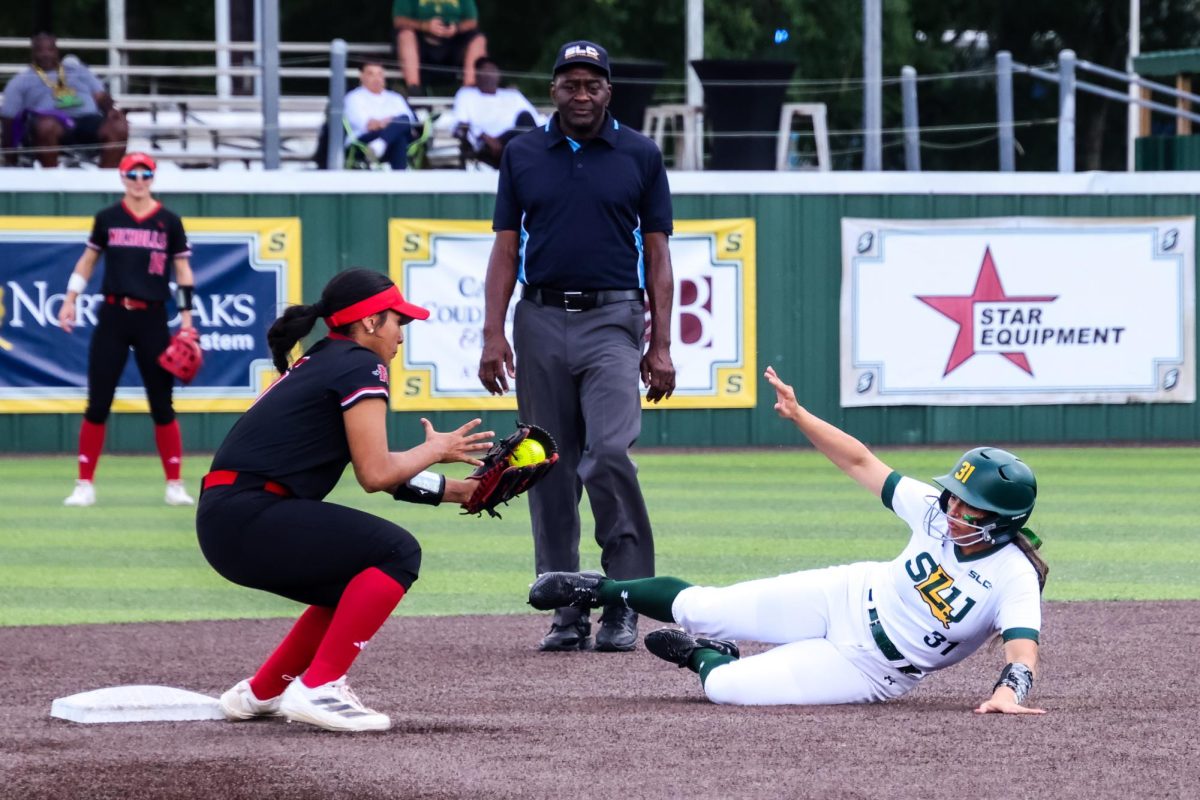On Wednesday, Nov. 1, Southeastern and state leaders spoke on recent Title IX legislation and what can be done moving forward.
Louisiana State Senator Regina Barrow (D-15) talked about the recent legislation involving Title IX efforts.
“We found that there wasn’t enough money allocated to really address and establish the departments that needed to be established. The money that we were able to secure—5 million dollars each year—has allowed each system to be able to create a better structure to be able to do some of those technical things,” she said.
Southeastern’s current Student Government Association president Lacey Johnson gave her thoughts on Title IX efforts at SLU as a representative of the student body.
“We have lots of conversations about it in my student government because that’s where it starts—with a conversation. Having that availability empowers students to want to talk about it. We need students to know that they’re not a number or statistic,” Johnson said.
Johnson described her commitment to reaching as many students as possible.
“We do a lot of tabling events where students can pass by while grabbing something to eat. We put up posters around campus and make sure we’re addressing students in every way possible. Not just making a social media post and calling it done,” Johnson explained.
She addressed the vital role that faculty have in the well-being of students.
“I think our professors do a really great job by putting this Title IX information in the syllabi, that’s very important. We have such a great faculty-to-student ratio so that faculty can see when a student might need someone to talk to,” Johnson stated.
Nicolette Joseph, children’s advocacy coordinator of the Louisiana Coalition Against Domestic Violence, explained specific ways to improve campus gender equity.
“Have an expert come in and train the staff for faculty professional development. Whether it be regarding gender equity or diversity. Review institution guidelines and policies that fall under gender equity. This information should be on your websites, in your catalogs and in handbooks,” Joseph said.
Joseph continued providing methods to promote a gender-equitable campus culture.
“The use of gender-inclusive language is an important way to include and respect individuals at our institutions and our universities. If an individual expresses they would prefer to be addressed using specific pronouns, we can honor this and speak to them in a way that they feel respected, seen and empowered,” Joseph said.
She emphasized awareness of LGBTQ+ and students of color’s unique experiences.
“No victim or survivor of abuse is the same. Abuse is abuse. Violence is violence. We have to remember and know that this can happen to anyone,” Joseph stated.
Barrow assured listeners of Title IX’s priority to the current administration.
“This legislative body is committed to the work. We will continue to make sure that all the young people on our campuses feel safe and know they are safe. There’s going to be action to ensure that,” she said.
This panel was moderated by Teressa Leday, Title IX coordinator, University of Louisiana at Lafayette.
The panel was a feature of the Title IX Summit organized by the University of Louisiana System (ULS). The ULS is comprised of multiple universities dedicated to higher education. It provides programs, training and resources to create a coordinated community response to sexual violence.
The participants continued discussion in breakout sessions and covered the following topics:
- Supporting the academic success of pregnant and parenting students
- Responsible employee training for student-facing roles
- Proactive measures to mitigate Title IX suits
- What you need to know about the new Title IX and athletics Notices of Proposed Rulemaking (NPRM)
- Mapping the courts: understanding the due process application in campus investigations
Discussions on the agenda for the Nov. 2 breakout sessions:
- An overview of the procedural requirements for Title IX investigations
- Lessons from recent court decisions
- Navigating the path to purpose: Guiding stakeholders from the “what” to the “why” through emotional intelligence
- Title IX and Collegiate Athletics: What is required?
- Trauma-informed response in the age of Title IX and Gen Z students
- Building blocks (Building your Title IX team)
More information can be found at ulsystem.edu.














